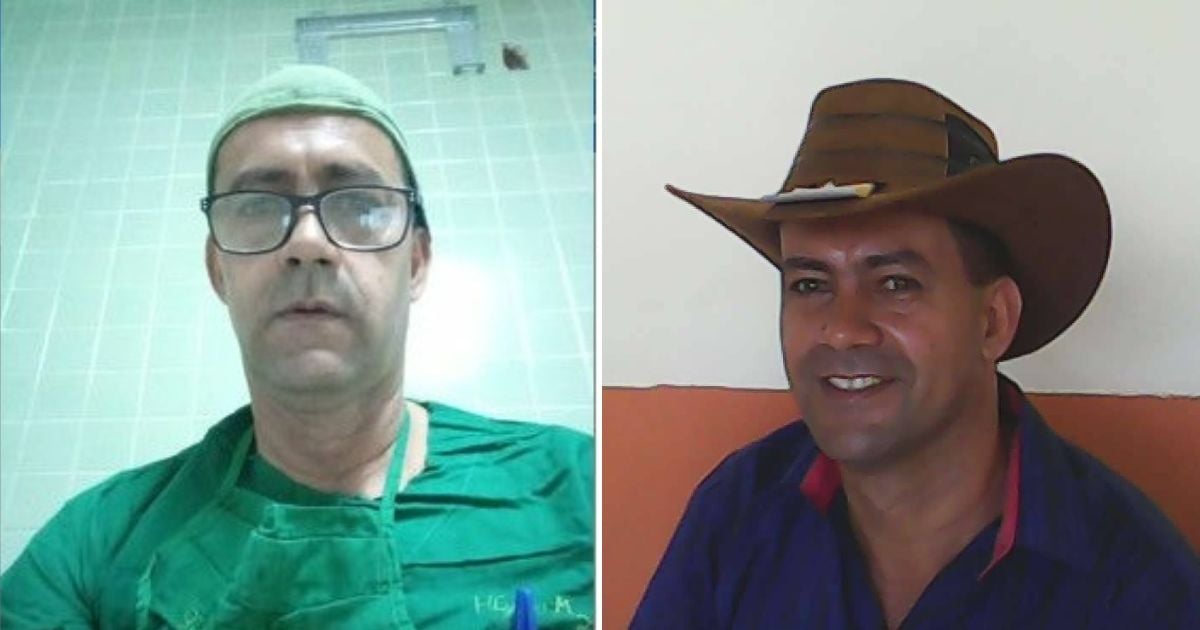José Manuel Suárez Villalobos, a seasoned surgeon with 28 years of service in Cuba's public health sector and a resident of Camagüey, has openly criticized the regime for preventing him from leaving the country to reunite with his family. “How long must I endure the punishment for becoming a medical specialist?” he questioned vehemently, reflecting the frustration of many colleagues who are forced to work under precarious conditions with no chance of leaving the island, as reported by journalist Javier Díaz on Facebook this Tuesday.
The surgeon, who graduated from the University of Medical Sciences of Camagüey in 1996, approached Díaz in a desperate attempt to highlight the violation of his liberties, including the right to freely enter and exit his homeland. Suárez revealed that he had participated in three international missions, earning a meager salary of 20 USD per month, or sometimes less, as in Venezuela where he received 225 CUC monthly, which barely covered his basic needs.
“I believe I have contributed to the country, and if I still owe anything, it should not be a reason for such an unjust punishment,” stated the specialist, who remains trapped on the island, only able to see his loved ones, including children and grandchildren, through a phone screen. The doctor reported that he has repeatedly requested to be freed from the "regulations or restrictions that prevent me from obtaining a passport and traveling like any other Cuban citizen," but has always been denied despite not being indispensable in his hospital or municipality.
Nevertheless, the regime has ignored all his appeals and continues to enforce the travel ban. Suárez called for justice and freedom, urging the international community, human rights organizations, and the United Nations to take notice of his plight and intervene.
Increasing Restrictions on Cuban Medical Professionals
In 2022, more than 12,000 doctors left Cuba's Public Health System, prompting the regime to tighten its grip on these professionals, who are often sent to other countries under so-called missions or collaborations, a system likened to modern-day slavery. Statistics from the National Office of Statistics and Information revealed a widespread decline in healthcare personnel, exacerbating the ratio of inhabitants to doctors.
By the end of 2022, the island recorded 94,066 doctors, a significant drop from 106,131 in 2021, equating to a loss of 12,065 professionals. This trend led the Cuban government to further restrict overseas travel for medical specialists, dentists, healthcare technicians, and nursing graduates in 2023. This policy was announced by Marcos del Risco del Río, the Director of Human Capital at the Ministry of Public Health (MINSAP), during a videoconference, where he requested "discretion."
However, MINSAP later clarified that "there is no migratory regulation for specialists in Integral General Medicine or newly graduated doctors," a stance that aligns with their goal of leasing as many specialists as possible to foreign countries. Despite this, Cuban doctors frequently report being told they are "regulated" and cannot obtain passports when they visit identity card offices.
FAQs on Cuban Medical Professionals' Travel Restrictions
Given the increasing restrictions on Cuban medical professionals, many questions arise about the policies and their implications. Here are some common questions and answers to provide clarity on the issue:
Why are Cuban doctors restricted from traveling abroad?
The Cuban government has imposed travel restrictions on medical professionals to retain their services within the country and for international missions, which are a significant source of revenue for the regime.
What are the conditions like for Cuban doctors on international missions?
Cuban doctors on international missions often work under harsh conditions and receive minimal compensation, contributing to their financial struggles despite their critical roles.
Has there been any international response to these restrictions?
International human rights organizations and bodies like the United Nations have been urged to take action, but significant changes or interventions remain limited.
